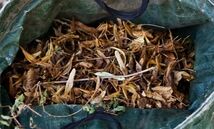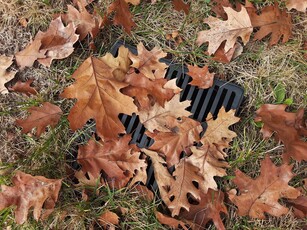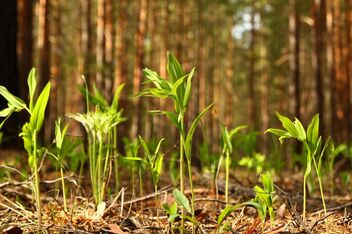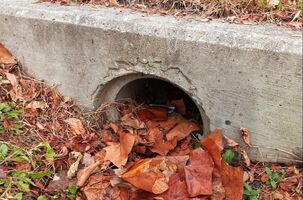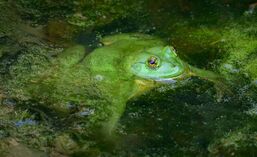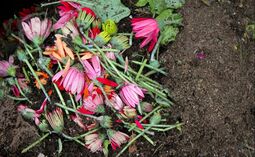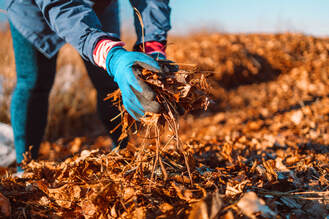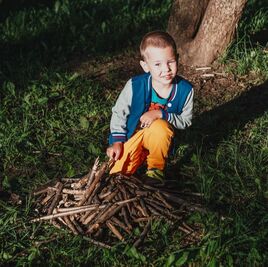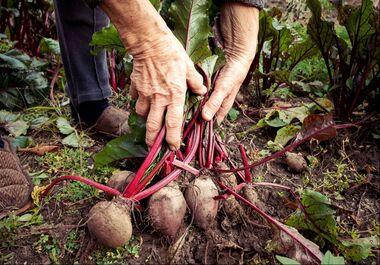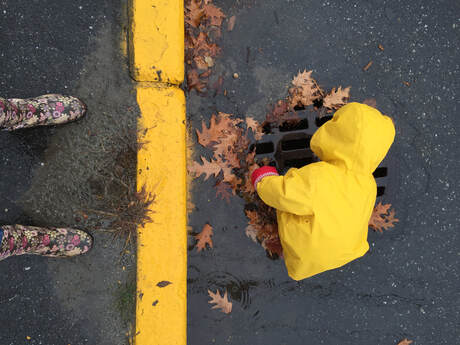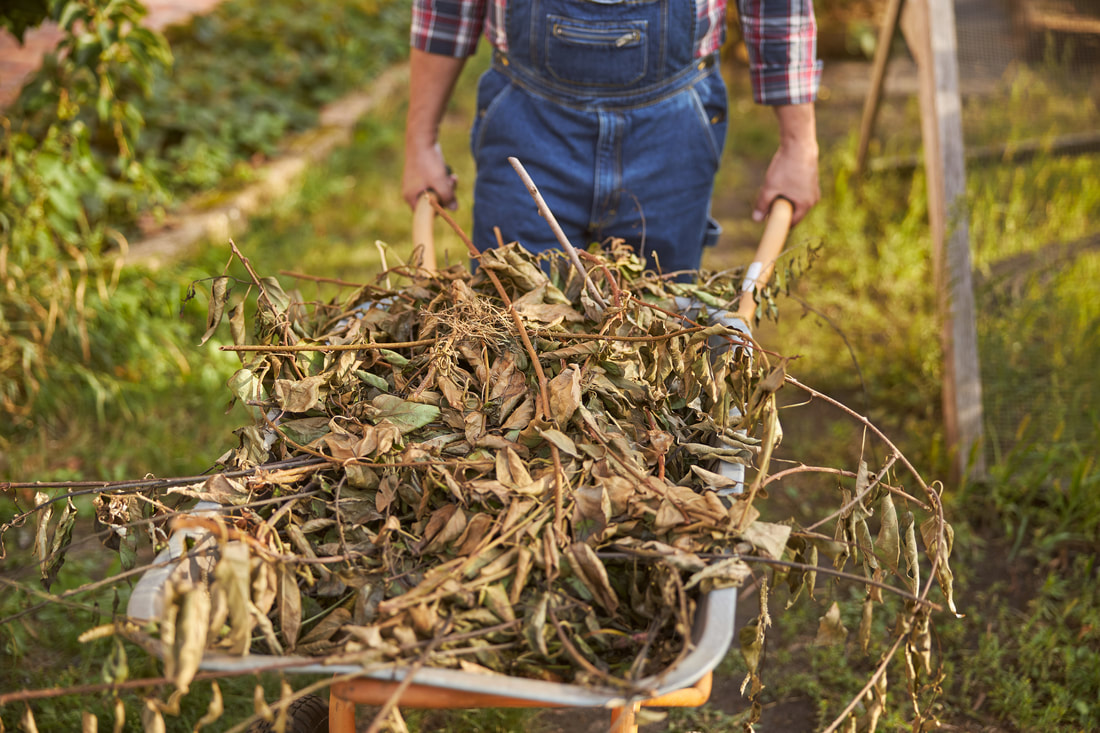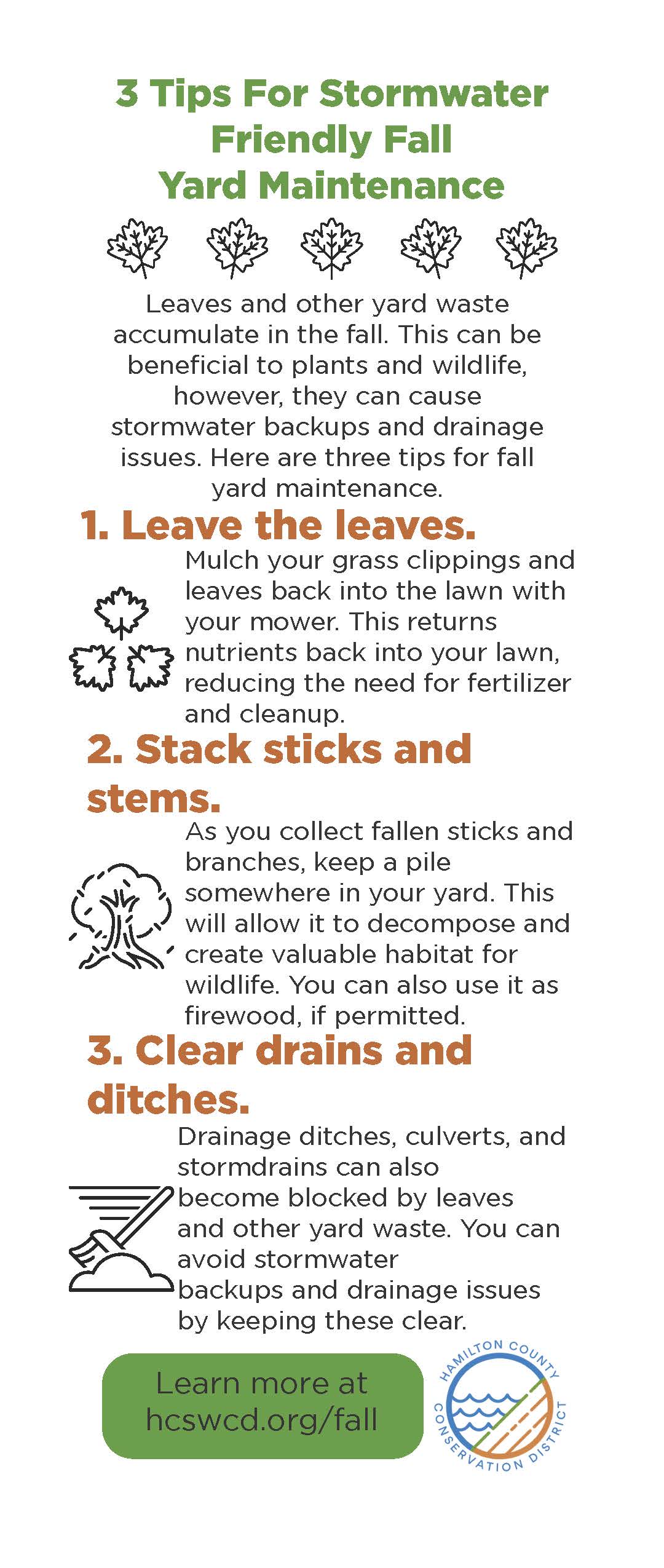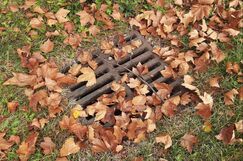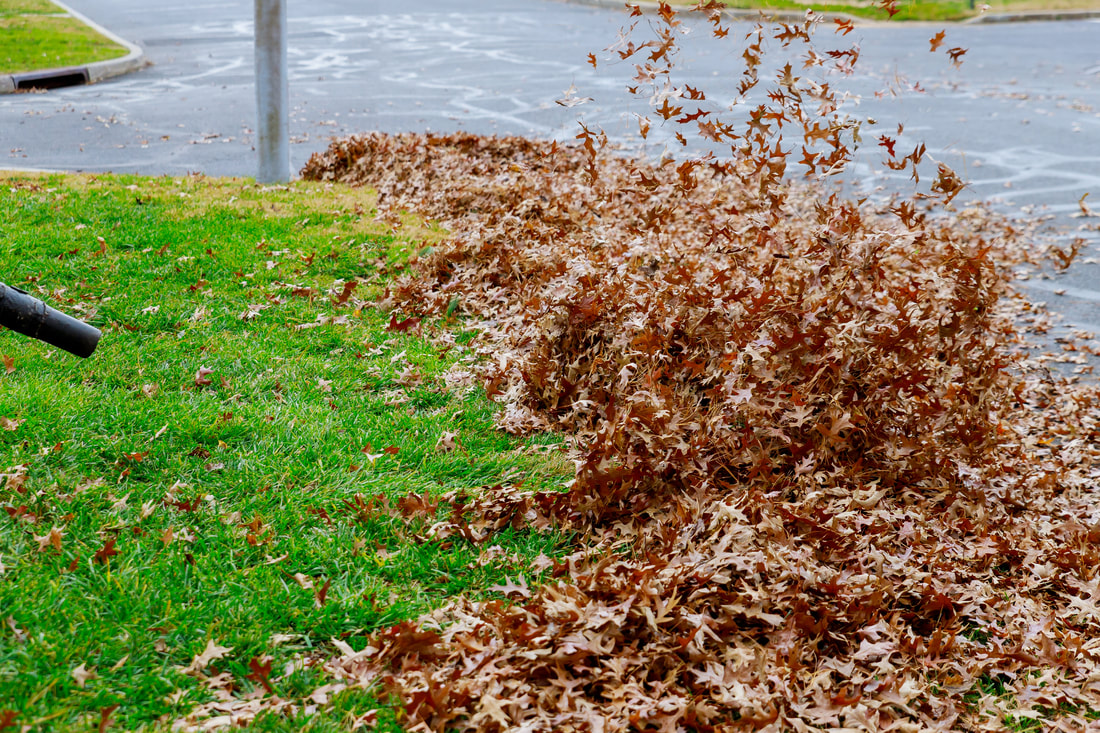|
Why are we concerned about yard waste?
Yard waste is not inherently a problem, in fact, leaving it alone can often be beneficial! Still, in some situations it can cause problems. Leaves and other yard waste accumulate in the fall and can clog drains and ditches, leading to stormwater backups and drainage issues. Leaves and yard waste should never be swept into storm drains, streets, or other pipes, drains, or culverts. |
Watch our Fall 'Seasonal Stormwater Series' video to learn more!
Benefits of Yard Waste
|
In natural areas like a forest, leaf litter, fallen branches, and dead stems from last years blooms are piled up thick enough to act as natures 'mulch'. This provides winter food and shelter for insects, nuts and seeds that will become next years' sprouts. These things then become food for more critters up the food chain like baby birds, rabbits, and their predators. It's amazing how a little leaf litter can foster a thriving ecosystem!
|
Problems with too many leaves
- Land Animals - Most terrestrial wildlife would actually benefit from the results leaf litter and dried stems. The circumstance in which this could become harmful is when there are chemicals, such as pesticides, or man made litter, like plastic bags, mixed in with the yard waste that could be ingested by an animal.
|
- Soil & Plants - Decomposing plant material of any kind returns nutrients to the soil, which benefits the plants growing there. However, especially thick layers of leaves can also smother turf grass, leaving bare spots in the spring (you don't see grass growing on the forest floor!). While this is not an issue for nature, it may be considered unattractive depending on where it is in your yard.
Best Practices for Residents, Businesses, and Property Managers
1. LEAVE THE LEAVES -
- Lawns - Mulch your grass clipping and leaves back into the lawn with your mower. This returns nutrients back into your lawn, reducing the need for fertilizer and cleanup. If you don't like the look or have an especially thick layer of leaves, you can bag and compost them. Some communities offer leaf/yard waste pick up services.
|
2. STACK STICKS & STEMS -
- Lawns - As you collect fallen sticks and branches before mowing, keep a pile somewhere in your yard. This will allow it to decompose and create valuable habitat for wildlife. If burning is permitted where you live, you can also use it as firewood.
|
|
|
3. CLEAR DRAINS & DTICHES -
|
Resources
|
|
For Businesses & Property Managers
|
For Municipalities
|
|
Office Hours: Monday to Friday 8 am to 4 pm
1325 East Kemper Road, Suite 115 Cincinnati, OH 45246 Phone: (513) 772-7645 The Hamilton County Soil & Water Conservation District is a legal subdivision of the State of Ohio responsible for the conservation of natural resources within Hamilton County, Ohio. We have a special emphasis on soil and water with a focus on assisting landowners in planning and applying conservation practices on the land. HCSWCD is dedicated to the sustainable use of our natural resources and to encouraging positive behavioral changes that produce a higher quality of life for our citizens. The District assists all Hamilton County residents, schools and jurisdictions through our free services and dynamic partnerships that continually provide innovative solutions for the challenges of our region.
|
Talk to Us!
|

